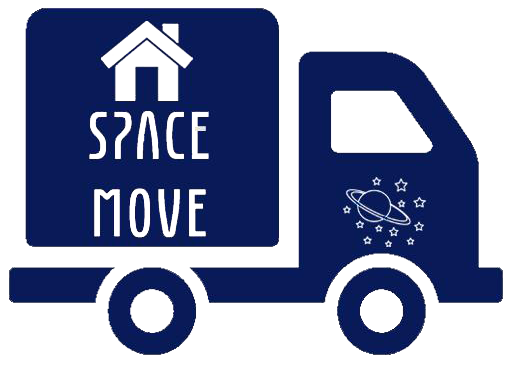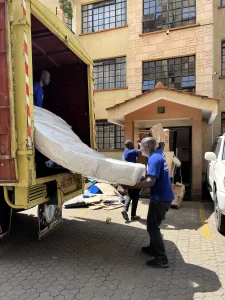Relocating may be a costly and stressful process; therefore, many people choose not to purchase insurance to save money. Nevertheless, there are a lot of dangers and potential losses associated with this choice. Anyone preparing to move must be aware of the possible dangers of doing so without insurance.
Property Losses
Property damage is one of the biggest dangers associated with relocating without insurance. Your possessions are handled and moved around a lot during the moving process, which raises the possibility of unintentional damage. You will be responsible for covering the cost of replacing or repairing any damaged goods if you don’t have insurance. The cost of replacing valuables like gadgets, furniture, and sentimental objects can quickly mount up and strain your finances.
Loss or Theft
The potential for theft or item loss during the move is another danger. Even while experienced movers are usually reliable, mishaps do occur. If you do not have insurance, you will be left with no recourse if items disappear or are stolen during the moving process. Losing priceless items, particularly ones with sentimental worth, may be both financially and emotionally painful.
Personal injury
Moving entails strenuous lifting, navigating confined areas, and other strenuous physical tasks that may result in personal injury. If you don’t have insurance, you could be held accountable for any accidents that happen to you, your friends, family, or even the moving company’s employees.
Damage to the Property
Your old and new properties may sustain unintentional harm if you move large or heavy furniture or bulky objects. During a relocation, common accidents include damaged windows, dented walls, and scratches on flooring. If you don’t have insurance, you’ll be responsible for paying for the potentially costly repairs. If you’re moving out of a rental house, this may also cause tension in your relationships with landlords, neighbors, or possible purchasers.
Peace of mind
Having insurance gives you piece of mind when you relocate. Moving can be stressful, but it can be made much less stressful by knowing that your possessions are protected against hazards. With insurance, you won’t have to worry about your belongings’ safety all the time; instead, you can concentrate on other crucial aspects of the move, including settling into your new house and getting used to the new surroundings.
Conclusion
Relocating without insurance carries a number of serious hazards. The financial repercussions might be substantial for any number of reasons, including property damage, theft or loss, personal injuries, and property damage. Purchasing insurance before moving is a prudent option that offers piece of mind and protection for your possessions.
Insurance Types to Take Into Account When Relocating
Relocating can be both thrilling and difficult. The several kinds of insurance that might offer protection during the moving process should be taken into consideration, regardless of whether you are moving across town or to a new city. While you’re organizing your move, take into account the following insurance types:
- Renters’ or homeowners’ insurance: Examine your current renters’ or homeowners’ insurance policy before the move to find out what coverage it offers for your possessions. While some policies might not protect your personal belongings while they’re in transit, others might. It is imperative to make sure that your possessions are sufficiently insured for the duration of the relocation, including against any potential theft or damage.
- Insurance for Moving Companies: If you are using a seasoned moving company, find out if they will insure your possessions throughout the transfer. Released Value Protection and Full Value Protection are the two forms of coverage that the majority of reputable moving firms provide. Released Value Protection offers limited responsibility based on the weight of your things and is typically included in the moving cost. On the other hand, Full Value Protection offers more extensive coverage by paying you the cash value, replacement cost, or repair of any damaged goods.
- Auto Insurance: Make sure your auto insurance is current and fully covers your vehicle during the move if you are driving your own car to your new location. This covers any mishaps, harm, or theft that might happen while the vehicle is moving. A reputable auto shipping company could offer extra insurance coverage for the duration of the move. Before giving them your car, make sure you ask about their insurance coverage.
- Liability Insurance: This type of insurance offers defense against mishaps or injuries sustained while moving. Liability insurance might assist in defraying the costs if you or your professional movers inadvertently cause damage to a neighbor’s property. In addition, liability insurance might cover medical costs and legal fines if someone is hurt on your property while you’re moving.
- Storage Insurance: It’s imperative to think about storage insurance if your move requires you to store your possessions in a storage facility. Storage facilities could provide insurance policies to shield your belongings from damage, fire, and theft while they’re being stored. Examine the facility’s insurance offerings and, if necessary, think about getting more.
- Insurance for Valuable Items: It’s crucial to determine whether your regular insurance plans will adequately cover expensive possessions like jewelry, artwork, or antique furniture during a move. To sufficiently safeguard these priceless things, you might occasionally need to get additional riders or separate coverage.
Knowing Your Moving Insurance Rights and Responsibilities
It’s critical to comprehend your moving insurance rights and obligations when it comes to moving. Insurance can offer comfort during the moving process, but it’s important to understand what it covers and what it doesn’t. Here are some important things to think about:
- Do your homework and make informed decisions: Consider your alternatives and compare coverage, premiums, and deductibles before deciding on a moving insurance policy. Selecting a trustworthy insurance company is essential if you want to be sure you receive the assistance you need when moving.
- Types of Moving Insurance: Full Value Protection and Released Value Protection are two of the various moving insurance options. While Full Value Protection only offers partial coverage based on the weight of your stuff, Full Value Protection guarantees that your belongings are insured for their actual value. Knowing what kind of insurance you have will enable you to assess the scope of coverage.
- Examine the policy. Before you sign any documents, carefully read the insurance policy’s terms and conditions. Be mindful of the exclusions, deductibles, and coverage limitations. To protect particular high-value things, make sure you are aware of what is covered and what additional coverage you might need.
- Inventory: Declutter your possessions and make a list of everything you want to move before the move. In the event that you must submit a claim, this paperwork will be essential.Before moving, take pictures or videos of your belongings to document their condition, especially if they are valuables.
- Talk to the Movers: It’s critical to discuss the insurance coverage you’ve chosen with your moving company. Make sure that everyone is aware of the extent of protection offered and address any uncertainties or concerns you may have.
- Report Damages Right Away: Notify your moving company and insurance company right away if you discover any damage or item loss throughout the moving procedure. There can be a time limit on making claims, so you have to report as soon as possible to make sure you get paid what you’re entitled to.
- Recording and Submitting Claims: When submitting a claim, make sure you include all the supporting paperwork you need, such as invoices, images, and other proof of your case. During the claims procedure, adhere to the guidance given by your insurance company and make sure all necessary paperwork is correctly filled out.
- Think About Adding More Coverage: You might want to think about adding more coverage, depending on the worth of your possessions and the amount of danger involved. A few insurance companies provide add-on coverage to guard against certain risks, like damage sustained during transit or natural disasters.
What to Do If There Are Losses or Damages During a Move
Relocating can be a stressful process, and mishaps sometimes occur. It’s critical that you take the appropriate action to guarantee that you can handle the problem if you discover that your possessions have been misplaced or destroyed throughout the moving procedure. In the case that there are losses or damages during a transfer, follow these procedures:
- Record the harm: It is important to record any damages or missing objects as soon as you become aware of them. Record the damaged goods using pictures or videos, making note of any unique information or distinguishing features. When submitting a claim to the insurance company or moving firm, this documentation will come in handy.
- Speak with your moving company: Inform your moving firm of any losses or damages right away. Give them a thorough rundown of the goods and the degree of the damage. They might be able to provide support or payment, and they might have policies in place for dealing with these kinds of circumstances.
- Examine your insurance policy: If you have acquired relocation insurance, go over your policy to find out what is covered and how to submit a claim. Be especially mindful of any deadlines associated with reporting losses or damages.
- Make a claim: To make a claim, get in touch with your insurance company. Give them all the required paperwork, such as pictures, videos, and a thorough account of the losses or damages. Be ready to respond to any inquiries they might have about the specifics of the loss or damage.
- Follow up: Maintain copies of all records and letters pertaining to your claim. To make sure that your claim is being handled promptly, follow up with the insurance provider and moving company. Continue to communicate on a frequent basis and send over any other files or information that may be needed.
- Take legal action into consideration: You may need to think about obtaining legal counsel if the moving business or insurance provider does not sufficiently handle your claim. To learn more about your rights and alternatives, speak with a moving and insurance claims specialist lawyer.







